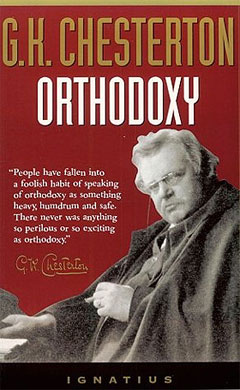
In Frye’s criticism, the literary critic should ideally be able to look at a literary work apart from its content, that is, “without making a judgment along the lines of one’s prejudices or one’s commitments in the world” (“Literature as Possession”; CW 21:305). He recognizes that our way into literature may initially be through writers with identities similar to our own, but for Frye the reader should quickly learn to leave those identities behind, and G. K. Chesterton is one of his standard examples of a critic whose judgment was deformed by his ideological allegiances. Frye considers the inability to transcend one’s own structure of beliefs and values as a form of anxiety: “There have been many great critics, such as Coleridge or Ruskin, or their followers like G. K. Chesterton and others, who seem to be incapable of making an aesthetic judgment. They make no statement about literature not coloured by anxieties of some kind” (CW 21:305). Frye has a lot to say about Ruskin, some of it high praise, whereas Chesterton does not figure prominently in his writing, except as an example of someone who “can’t think of the arts except as a source of homiletic points” (Diaries, 26 Feb. 1949; CW 8:141).
In a future post, I will compare some comments by Chesterton and Frye about the Middle Ages. I will conclude this instalment with a comment from Chesterton’s Charles Dickens (1906) that has a bearing on the discussion earlier about Frye and Calvinism. Chesterton sounds rather like Frye interpreting Blake; he is discussing Dickens’s ability to evoke an atmosphere of mystery, with specific reference here to Little Dorrit: “The dark house of Arthur Clennam’s childhood really depresses us; it is a true glimpse into that quiet street in hell, where live the children of that unique dispensation which theologians call Calvinism and Christians devil-worship.” (I should add, as befits someone who received part of his education in a college founded by Baptists, that I realize there is a lot more that can be said about Calvinism than is contained in Chesterton’s remark!)

Was Frye being unfair or am I completely naive?
Chesterton wanted to give his audience clear answers and Frye did not. Frye witheld answers because he didn’t want his audience to be stuck with them. Chesterton wanted to give his audience answers, not because he wanted his audience stuck with them and not because he considered himself the greatest authority on anything and not because he considered his own views to be in their final state, but because he thought that, if people were honest, the truth could take care of itself, and that a clear and honest answer backed by reason is as likely to yield truth through participation in a dialectic process as a reticent answer.
Clayton, I think (and have attempted to argue in an essay a few years ago) that Frye did not see the positive side of the appeal of tradition and orthodoxy in matters of religious belief. Perhaps in part it was his Methodist upbringing, perhaps the spectacle of Catholic fascism, which he comments on several times, but he doesn’t seem to have had much sense of what Chesterton terms “The Romance of Orthodoxy.”
Jean O’Grady has written an interesting account of Frye’s relationship with the United Church of Canada, showing that he didn’t find it much easier to get on with it than with the Catholic Church. She writes “If one searches the diaries and notebooks for evidence of Frye’s attitude to his clerical role, one may well be startled by the negativity of his remarks” (_Frye and the Word_, p. 176).